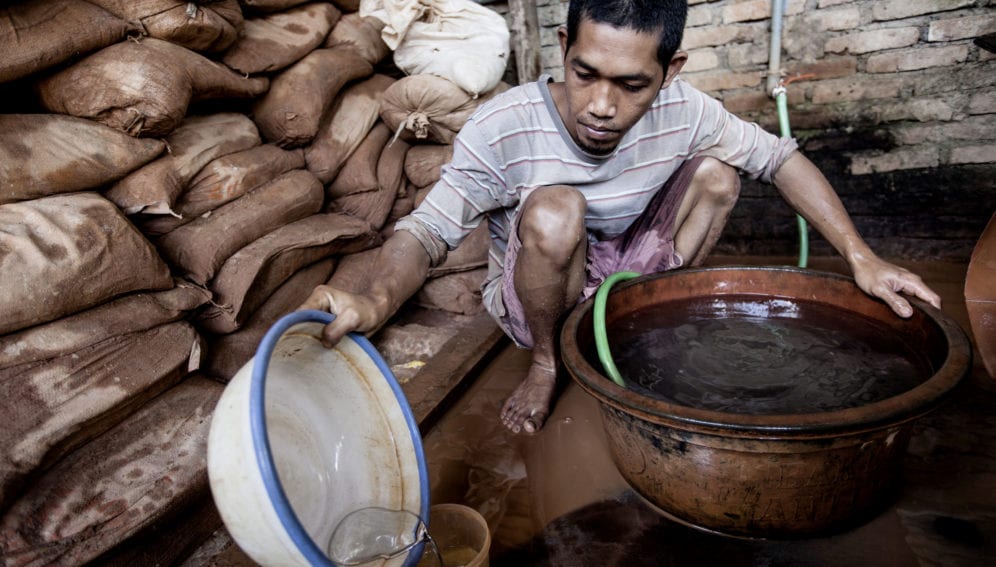Send to a friend
The details you provide on this page will not be used to send unsolicited email, and will not be sold to a 3rd party. See privacy policy.
[SANTIAGO] A global commitment to reduce health risks and environmental damage from mercury pollution came into effect last month (16 August), when the so-called Minamata Convention on Mercury entered into force.
The 74 countries which have become parties to the convention so far — out of 128 that have signed — are now legally bound to take measures towards eliminating new sources of mercury, reducing its use, trade and emissions, and regulating disposal of the element.
“Upon entry into force parties are obliged to obey all obligations within the Convention, some immediately (like the ban on the opening of new mercury mines); others, in a few years – for example, the phaseout of the manufacture, import and export of mercury-added products takes effect in 2020,” says Sheila Longan of the Interim Secretariat of the Minamata Convention.
“Despite its failings, the convention represents an international breakthrough that will address the global mercury crisis over time”
Michael Bender
Mercury is released naturally into the environment by volcanoes, forest fires and the weathering of rocks. However, most comes from human activities such as small-scale gold mining. It persists in the environment, no level of exposure is safe and mercury poisoning is incurable.
Most at risk are people who eat fish and shellfish that contain high concentrations of methylmercury (the organic form of mercury), and people regularly exposed to high levels of the element through their work.
Contamination with even small amounts may damage the nervous, digestive and immune systems as well as lungs, kidneys, skin and eyes. Fetuses and young children are most susceptible, with studies documenting mental retardation in a small proportion of children in fishing communities of countries such as Brazil and China.
The Convention takes its name from the world’s worst mercury poisoning incident, which affected thousands of people who ate contaminated fish in Minamata Bay, Japan, in 1956.
Its provisions include banning new mercury mines, phasing out existing ones, and regulating the use of mercury in artisanal and small-scale gold mining. Some15 million miners in 70 countries risk mercury poisoning.
Countries with major artisanal and small-scale mining industries, such as Peru, a party to the Convention, must reduce or eliminate the use of mercury and mercury compounds in that industry.
“After ratifying Minamata, Perú approved the Multisectorial Plan of Action for implementing the Convention, which includes actions towards reducing emissions in artisanal mining and other activities, with entities responsible for executing them, says Vilma Morales, of Peru’s General Directorate of Environmental Quality.
Other countries with major mercury challenges include those with significant emissions from burning coal and incinerating waste such as China and South Africa, as well as countries like Mexico with mercury mines.
In addition, the convention stipulates that mercury must be replaced from items such as light bulbs, thermometers, cosmetics, batteries, and teeth fillings, as well as from manufacturing processes that use mercury or mercury compounds.
Logan says implementation is underway in all regions, including in more than 100 developing countries with funding from the Global Environment Facility (GEF).
“As the convention, has only just entered into force, the focus of the work has been on support for countries to develop de internal requirements to implement the convention. Regarding implementation, guidance to the GEF has been developed indicating the aspects which will be supported by funding”.
However, the Zero Mercury Working Group, a coalition of over 95 public environmental organizations, believes that the treaty does not move far enough or fast enough to address the spiraling human health risks from mercury exposure. For example, it does not impose a ban on mercury use in artisanal and small-scale gold mining, nor does it set emission-reducing targets for coal-fired power plants.“Despite its failings, the convention represents an international breakthrough that will address the global mercury crisis over time,” says Michael Bender, the group’s international coordinator.














